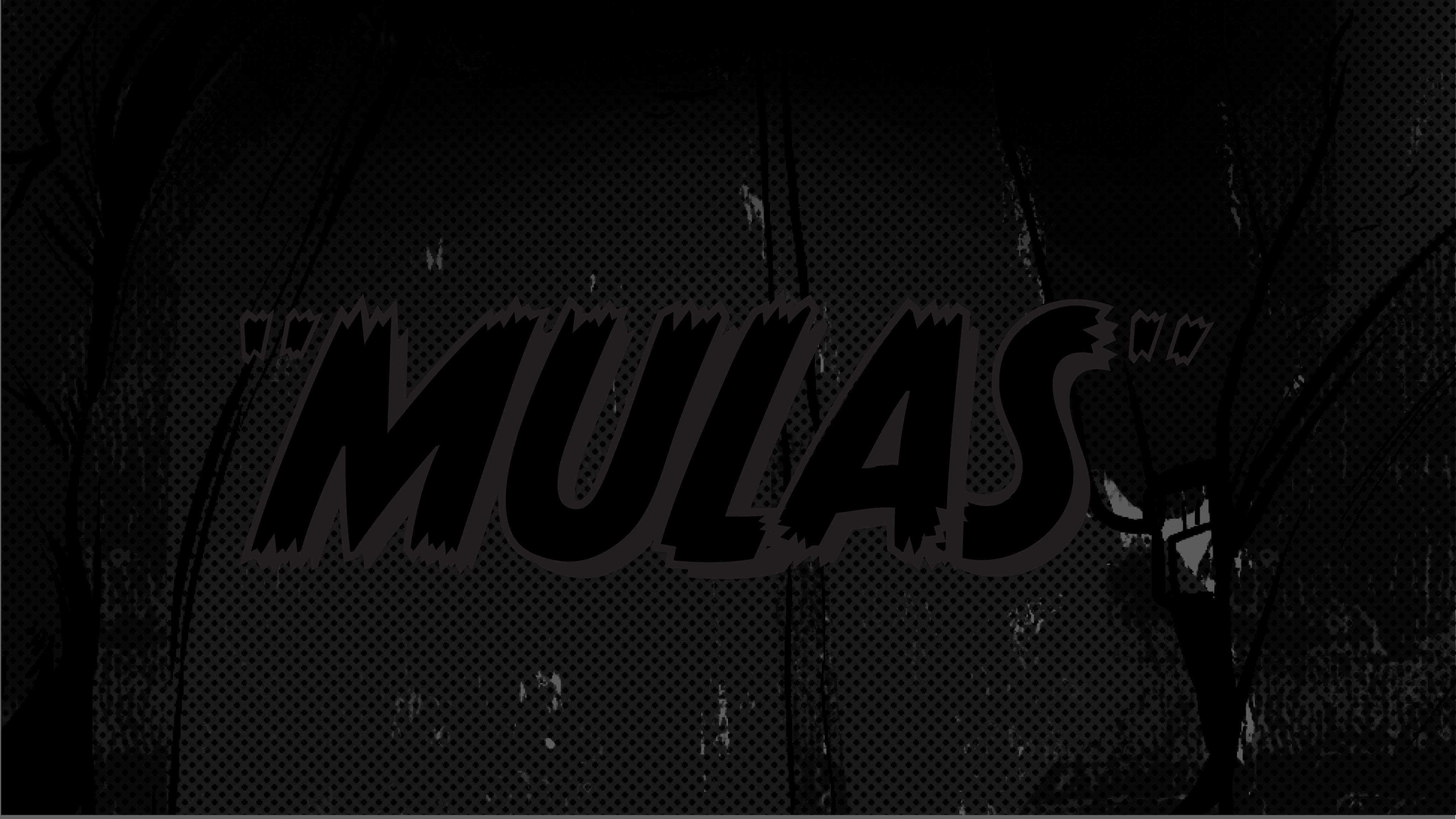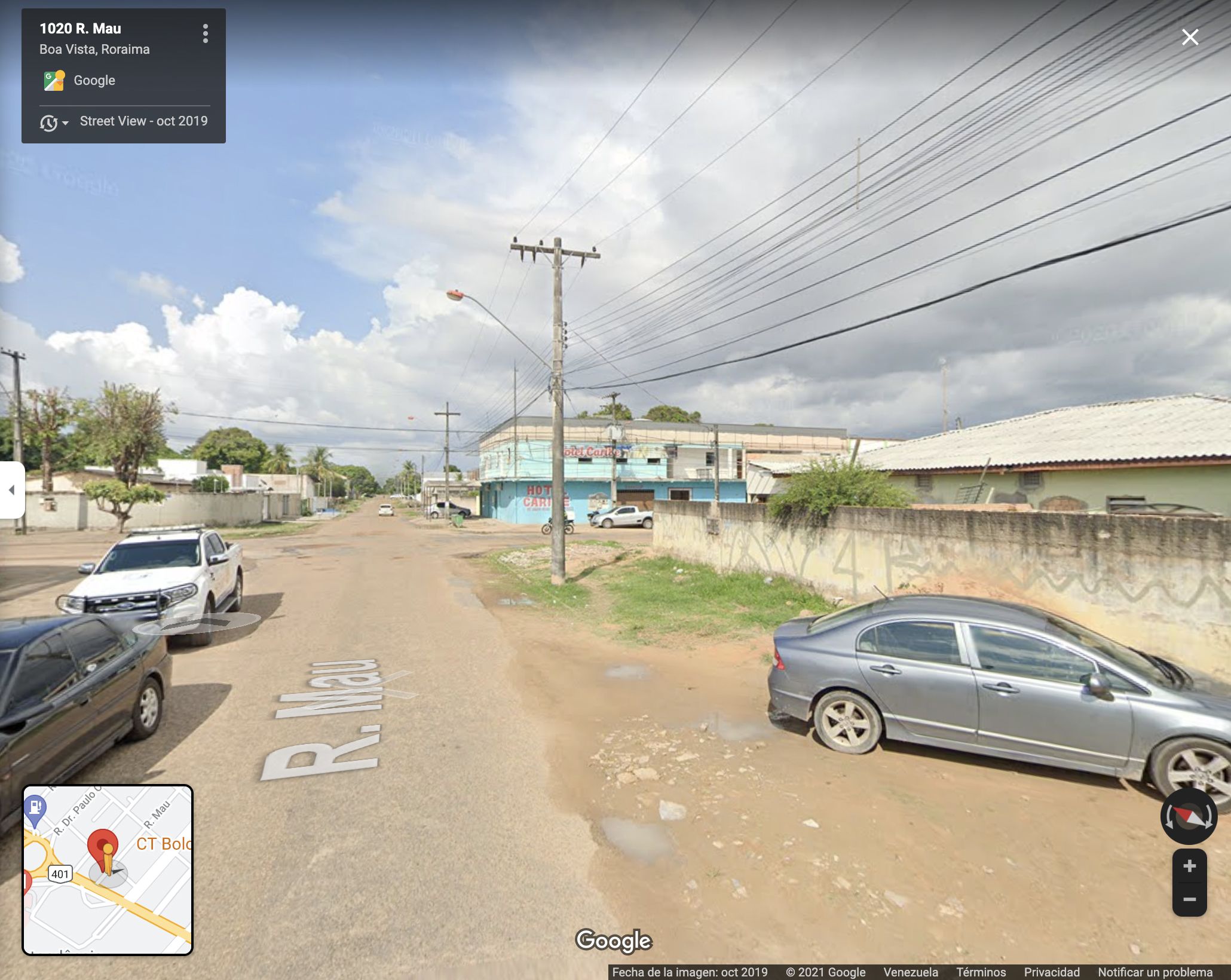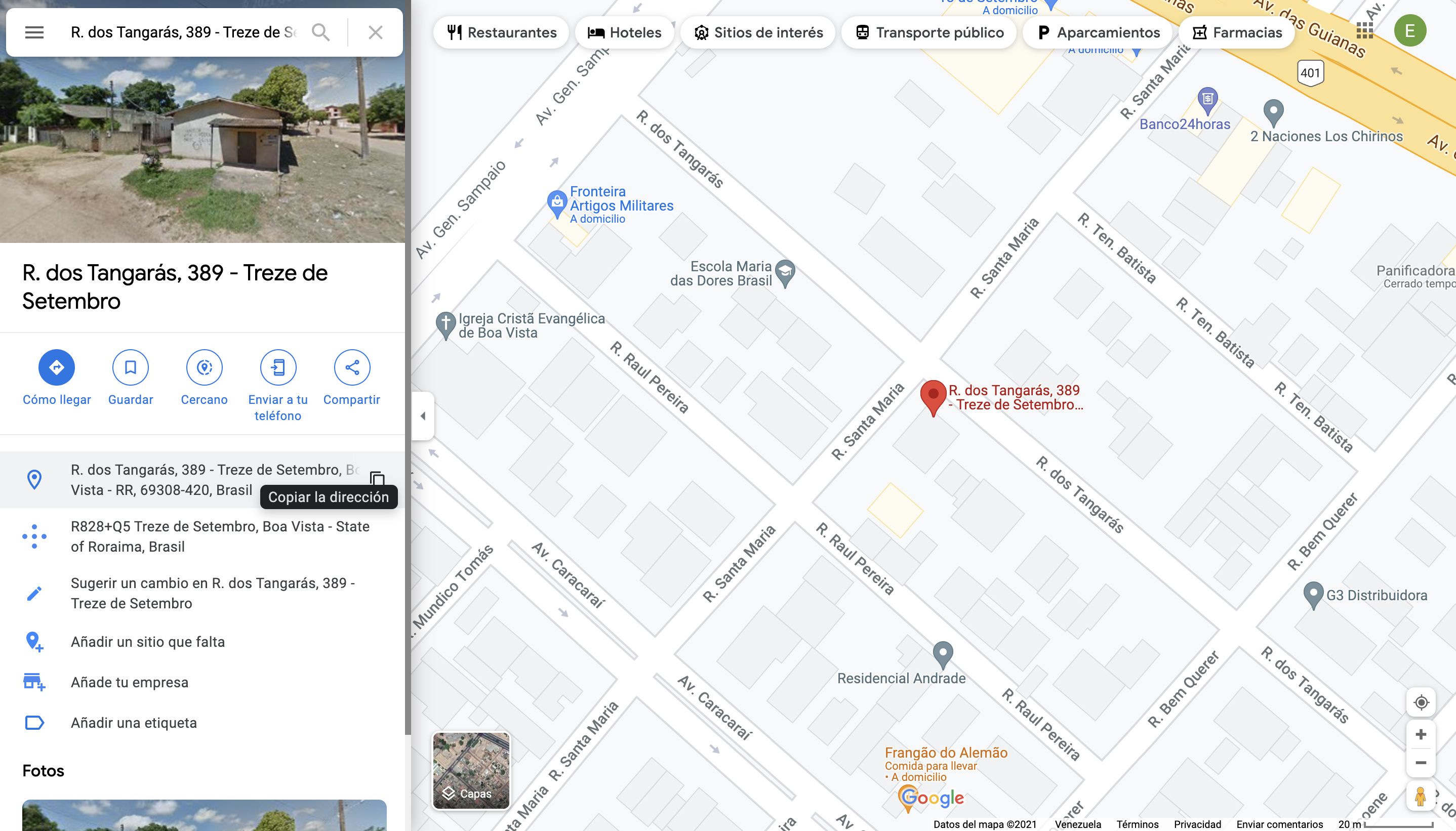BRAZIL, THE EPICENTER OF THE TRAFFICKING OPERATION TO EUROPE

Female, Venezuelan, and migrant are three appealing characteristics for drug trafficking networks. Alba Martinez* is among the approximately 300,000 Venezuelans refugees in Brazil. As her fellow citizens, she lives in poverty. A few days after her arrival, she had her first economic difficulty. In order to help her solve it, her landlord, a Nigerian who managed a hotel in Boa Vista, suggested her to travel as mule to Europe. This is how she was tangled in the same network that sent Marvin to Paris
In January 2020, the claim of a Venezuelan migrant led the Brazilian Federal Police directly to a hotel near the bus terminal in Boa Vista, the Brazilian state of Roraima. Alba Martinez*, who is forty-two years old, told the police officers that she was to be used as mule to carry drugs to Europe.
According to Alba’s account to the police officers, the idea came from Emmanuel Ifeanyi Anih, the forty-four-year-old Nigerian owner of the Victoria City Hotel.
Alba explained the police that she arrived with her three children to Brazil in December 2019 and stayed at the Victoria City Hotel located in front of the Boa Vista bus terminal. She quickly ran out of money. Ten days afterwards, she could not even afford half of the daily hotel accommodation fee of US$ 10.
Meanwhile, Emmanuel Anih recorded every surplus until he realized the increased bill and made the proposal to Alba.

A street in Boa Vista near Victoria City Hotel, where potential mules were recruited | Screenshot
A street in Boa Vista near Victoria City Hotel, where potential mules were recruited | Screenshot
Like Alba, dozens of Venezuelan arrive on a daily basis to Brazil through clandestine routes between the border cities of Santa Elena de Uiaren located in the Venezuelan state of Bolivar and Paracaima in the Brazilian state of Roraima. On their way, they leave their cellphone, clothing, and shoes.
“I left Venezuela out of necessity, searching for better living conditions for my son and me,” Andrea, another Venezuelan, stated, after she crossed the border that had been closed for Covid-19 pandemic.
Brazil is among the six countries with the highest number of Venezuelan migrants and refugees. ACNUR estimates that nearly 300,000 Venezuelans have fled to Brazil in recent years, which represents 6% of the Venezuelan migration in Latin America.
Without money or job prospects, most Venezuelans end up in Boa Vista, the capital city of the Brazilian state of Roraima, about 137 miles away from the border. They live in humanitarian camps like the one behind the city bus terminal, where food is distributed and communal bathrooms and laundry are available. There is also a warning sign that reads: “Human trafficking is a crime. Report it.”
This is not a coincidence. An officer of the International Organization of Migration (IOM) that used to work in their premises mentioned that she heard rumors about dubious proposals made to the migrants and refugees there. “Individuals who live here are in very vulnerable conditions,” she added.
There are bakeries, sandwich businesses, restaurants, and hotels at the bus terminal. Hotels and restaurants are well-known for being filthy and unsafe. Nonetheless, the daily accommodation fee for a single and double room is of $US 10, which is quite attractive for migrants and refugees with little money and many needs just like Alba.
For this investigation, the ARI team had access to Alba’s file. According to her account to the police, the Nigerian owner of the hotel where she stayed proposed her to travel to France carrying cocaine capsules in her stomach. The journey included the departure by bus from Boa Vista, followed by a stop in Manaus (in the Brazilian state of Amazonas), then a flight to Belém (in the Brazilian state of Pará) where she would cross to French Guiana, and then the final flight to Paris, France.
Alba’s route matches the journey made by Marvin (See COMIC) and Joe (See CHRONICLE), two Venezuelans recruited in Caracas by other Venezuelan members of the Nigerian drug and human trafficking network.
Alba would be compensated in dollars. She was offered US$ 4,000 for the trip and forgiveness for her hotel debt. Initially, she accepted. According to her statement in the police file, she submitted her passport and waited for her air tickets to be purchased.
On January 18, 2020 at 7:00 AM, Alba’s preparation for her departure began. She mentioned that before boarding at the bus terminal, she was taken to the Acceso Rapido Hotel in Boa Vista, where the cocaine capsules were located. It was a few blocks away from the Victoria City Hotel, where she stayed.

Address of Acceso Rápido Hotel owned by a Nigerian and where Venezuelans who were used as drug mules had been | Screenshot
Address of Acceso Rápido Hotel owned by a Nigerian and where Venezuelans who were used as drug mules had been | Screenshot
At the hotel, Alba met another Venezuelan who also received the proposal of traveling to Paris. Between the two of them, they would carry 123 cocaine capsules, divided in equal parts, that were to be delivered by a woman.
However, when Alba saw the drugs, she desisted from the idea and informed them that she would not travel. Her decision had consequences since she was immediately vacated from the hotel with her children. This was the moment she decided, quite scared, to go to the police and report them.
On January 31, the police officers went to the Victoria City Hotel because of Alba’s report. The Nigerian Emmanuel Anih was arrested in site. The passports of the victim and other five migrants from Bangladesh were found. A cocaine capsule was also seized.
Anih’s time in prison was short. The Brazilian justice’s reasons for his prompt release remain unknown.
A few months later, on September 17, 2020, the Nigerian was arrested again along two other Venezuelan men. The reason for his arrest for flagrante delicto was the recruit of Venezuelans for drug trafficking in Boa Vista.
A hotel, a CHRISTIAN CHURCH, AND...
At least regarding the mules, the Nigerian Emmanuel Anih does not operate alone. The Acceso Rapido Hotel in Boa Vista is key in the structure and identification of this drug and human trafficking structure.
Alba, Marvin, and Joe, the three Venezuelan major participants of this investigation, were there. According to their accounts, the Acceso Rapido Hotel served as the main point in the sending of drug carriers to Europe.
Through the query of public data of the Brazilian Federal Revenue Service, it was possible to identify the Nigerian Kevin Muroof Ezequiel Salami of forty-two years of age as the owner of the Acceso Rapido Hotel, which has two other branches in Boa Vista. He is also the lead pastor of the Redeemed Christian Church of God in Boa Vista and is widely known by the Federal Police.
Kevin Muroof, who sought asylum in Brazil in 2014 after crossing the Venezuelan border, was investigated by the Federal Police in 2016 for alleged financial crimes. During the police action that investigated the illegal practice of foreign exchange and foreign exchange fraud in Boa Vista, he was caught in flagrante delicto with US$11,000, 36,000 Brazilian reais, and 30,000 Guyanese dollars, which raised suspicion about the origin of the money.
At that time, Kevin Murrof told the police that the money came from his business activities (a cybercafe, a restaurant, and a hotel). Nevertheless, his justification was rejected by the authorities, who kept him detained.
The relationship between the Acceso Rapido Hotel and the Redeemed Christian Church of God in Boa Vista stands out. According to the church official record in the Brazilian Federal Revenue Service, this organization was founded in 2014, and the phone number listed in the registry (95 99177-5401) is the same used by the hotel.
The scope of action of the hotel and the church are similar. They both deal with migrants and refugees, most of them poor. In October 2020, the Redeemed Christian Church of God promoted actions to help families in need and distributed food baskets.
“THE GIANT OF THE SOUTH”
ALSO LEADS THE ROUTES TO EUROPE
Even though most of the cocaine trafficked to Europe comes from Colombia, Brazil has become an important transit country. According to the 2021 report of the United Nations Office on Drugs and Crime (UNODC), it is the second South American nation from where cocaine shipments have been sent to Europe since 2015.
According to the 2012 informe de AMERIPOL, Brazil gradually positioned itself that same year as a leading country regarding drug trafficking to Africa, and the most powerful criminal structures happened to be led by Nigerians.
According to academic reports and investigations, most of these criminal groups have established in Sao Paulo to export cocaine to Africa and Europe. “The Nigerian mafia, for instance, is known for controlling the drug shipment operations to Europe by mules or human courier,” an expert investigator on organized crime in Brazil, who requested anonymity, pointed out.
According to a report of FLACSO published in the Latin American Journal of Security Studies (URVIO by its Spanish acronym) in 2019, Nigerian groups export 30% of the cocaine from Brazil by sea and nearly 90% of the cocaine shipments by mules or human courier from Brazil to Africa.
Brazil, specifically through the state of Roraima, works as a drug trafficking route with Surinam as final destination. When the drug reaches Surinam, it is sent by air or sea to Europe, United States, Africa, and the Caribbean.
The arrest of Venezuelans involved in drug trafficking has increasingly become popular in Roraima. According to data from the Brazilian Integrated Force to Combat Organized Crime, an alliance among three Brazilian police forces (the military police, the civil police, and the federal police) that investigates criminal organizations, from August 2019 towards the end of 2020, about fifty-four Venezuelans were arrested in Roraima. This represents 18% of the total of 306 arrests carried out there mostly for drug trafficking.
According to the report of AMERIPOL, “Venezuela is used as a route for narcotics that come from Colombia, enter the Brazilian territory through the state of Roraima, are then taken to the city of Manaus, and are finally distributed in the rest of Brazil. Traffickers also use a different route that goes through Venezuela and then to Surinam, French and British Guiana.”
According to another document published by AMERIPOL in 2015, the geographical location of Brazil ranks it among the three leading countries in the routing of the cocaine exported to Europe and Africa.
In a procedure undertaken in 2019, the authorities seized a record amount of almost 62 tons of cocaine in Antwerp, the second biggest European port. It was estimated that 15.9 tons, nearly one quarter of the shipment came from Brazilian vessels, according to Belgian official reports.
The length of the Brazilian border, an advantage for drug smugglers, is one of the main difficulties this country faces in its fight against drugs. The border is over 10 miles long and limits with Venezuela, Colombia, French Guiana, Surinam, Guiana, Bolivia, Paraguay, Argentina, and Uruguay. It also has a large river network and several ports.
According to Andrew Cunningham, an expert of the European Monitoring Centre for Drugs and Drug Addiction, in a report by Reuters, despite COVID-19 pandemic, Colombia has a record of cocaine production with more than 1,050 tons in 2020, and Brazil plays a crucial role as transit country for drugs to reach Europe.
Furthermore, according a report by InSight Crime, “Europe is becoming the most important cocaine market” with higher profit margins and fewer risks than the United States.
